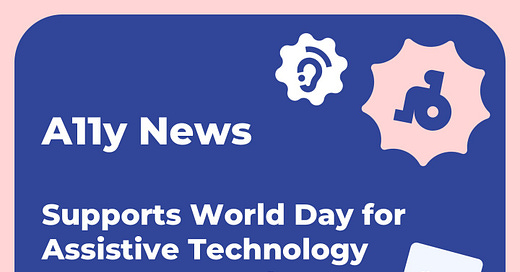Access to Assistive Tech
As UX researcher for assistive tech, I know the impact it can have if it’s the right fit. But the user journey to get there? Let's talk about that too!
Finding the right AT fit is like a shiny holo Charizard card: An immense joy and relief after a long search, magical, and it probably cost you a fortune to get there.
Researching how people obtain their assistive tech was a big task for me during the development process of the Sixth Sense. If you have worked on something for so long, you also want people to be able to use it. I talked to orientation-mobility officers about how they stay informed on options on the market, to previous trial participants, to specialized AT resellers, and conducted surveys in Austria as well as in the UK to find out… it’s a bit of a shitshow… unless you already know where to shop and pay directly out of pocket.
Getting insurance providers to cover AT was a unanimous pain point, but it’s not even the only one: Access doesn’t solely hinge on funding, but also on availability of products in your local specialist shop, of which you have maybe 1 to 3 in big cities. Rural locations are often overlooked (but at least in Austria AccessHub is trying to change that).
But as the CX people know, the customer journey doesn’t stop after purchase! Customer support - ideally easy to access and with lived experience - can make or break the customer experience. The user can’t just manifest ease of use, no matter how often we say that something is “oh so intuitive”. It’s still a new tool to get used to, and in many cases, that requires access to training and time to practice. People don’t just wake up blind and unlock the instinctual knowledge of how to use a white cane. The aforementioned Orientation-Mobility Officers do only that for a living!
TL;DR: Access to AT is not only about money (but it helps), it’s also about availability in the local area, time for training, continuous support and robust design!
Free Resources
Did I mention how expensive Assistive Tech can be? Here are a couple of free AT resources:
NVDA: a free screen reader software for Windows. Consider supporting them with a donation if you are in a position to do so.
Makers Making Change leverages the capacity of community-based makers, disability professionals, and volunteers to develop and deliver affordable open-source assistive technologies.
Also for makers: the Thingyverse
Please share whatever else you know in the comments!
Whether you're new to assistive tech or have used it all your life, there's a shared goal: Ensuring that more people can access the tools they need, when they need them.



